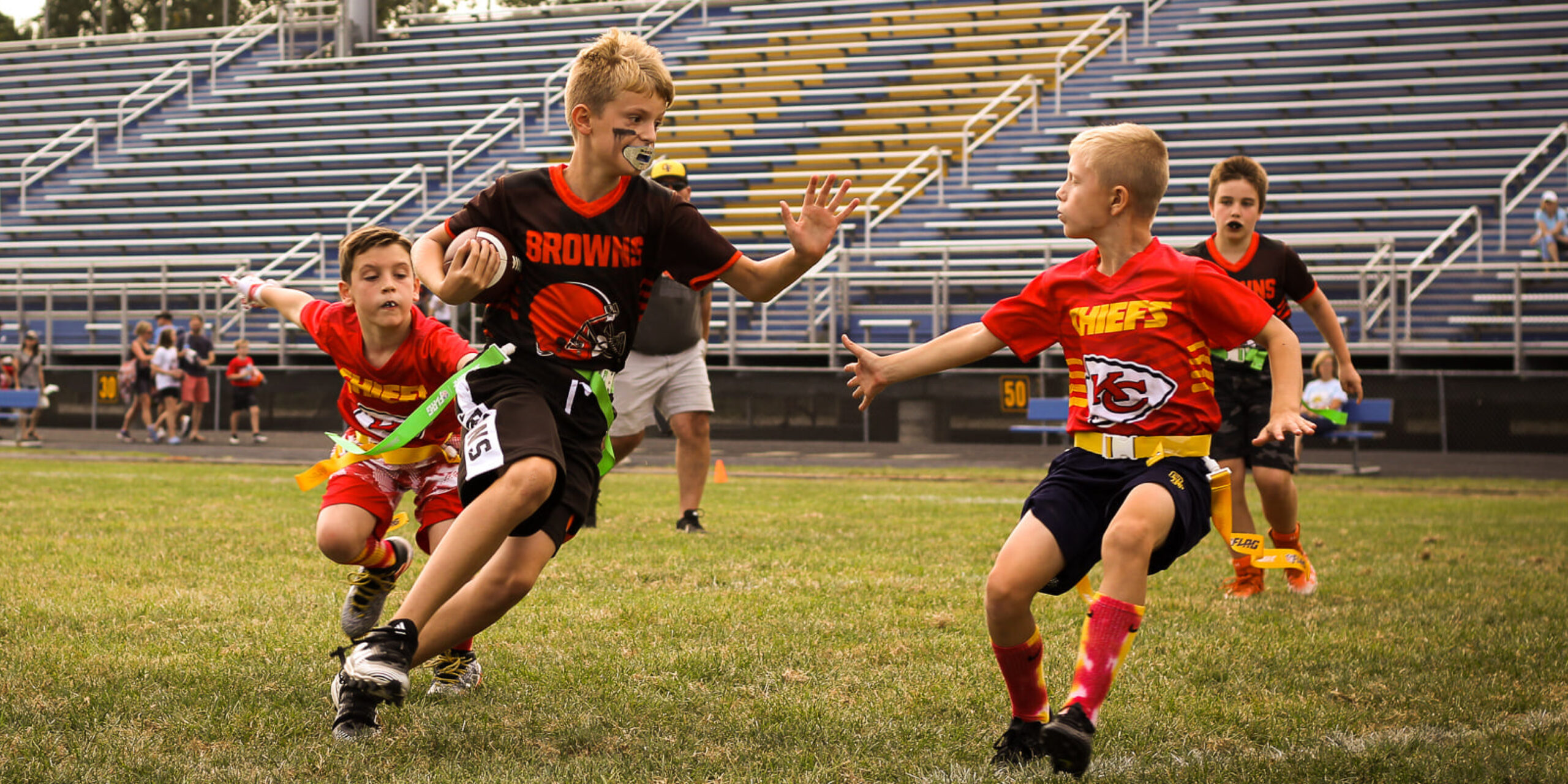
Good Sportsmanship for Youth Coaches
Good sportsmanship is the foundation of youth sports, and as a coach, you have the power to set the tone for your team.


Flag football is a fast-paced, non-contact variation of traditional American football, designed to be safer while maintaining the excitement and strategy of the original game. Unlike tackle football, where physical tackles are used to stop the play, flag football replaces this with the act of pulling a flag attached to a player’s waist. This small adjustment not only reduces the risk of injury but also makes the game more accessible to a wider range of participants, including children and adults of varying skill levels.
Key Components of Flag Football
At its core, flag football retains many elements of traditional football, but with a few important differences:
A game of flag football follows many of the same rules as tackle football. A team on offense attempts to move the ball downfield by passing, running, or a combination of both. The defense tries to stop them by pulling the ball carrier’s flag. Teams have a limited number of downs (often four) to either score a touchdown or advance the ball a certain number of yards to earn another set of downs.
Scoring in flag football mirrors that of traditional football. A touchdown is worth six points, and teams often have the option to attempt an extra point by passing or running the ball from a short distance after scoring. Depending on the league, extra points can be worth one or two points, similar to the PAT (point after touchdown) and two-point conversion rules in tackle football.
Flag football offers numerous benefits to players of all ages. These include:
Flag football has seen a surge in popularity, particularly at the youth and recreational levels. The NFL sponsors flag football leagues across the United States, promoting it as a safe and fun way for children to learn the game. Additionally, flag football is growing internationally, and its inclusion in youth sports programs is helping to expand its reach globally.
Flag football is an exciting, accessible, and safe alternative to traditional football that allows players to enjoy the thrill of the game without the physical risks associated with full-contact sports. Whether you’re looking to play competitively or just for fun, flag football provides a fantastic way to stay active, build teamwork, and develop football skills in a safer environment.

Good sportsmanship is the foundation of youth sports, and as a coach, you have the power to set the tone for your team.

Flag football is one of the fastest-growing sports in the world, combining the strategy of traditional football with a focus on speed, teamwork, and fun.

Maximizing your child’s athletic ability is about more than just excelling in sports; it’s about fostering their physical, mental, and emotional growth.

Managing a difficult situation in youth sports requires patience, empathy, and a focus on maintaining a positive environment for everyone involved.